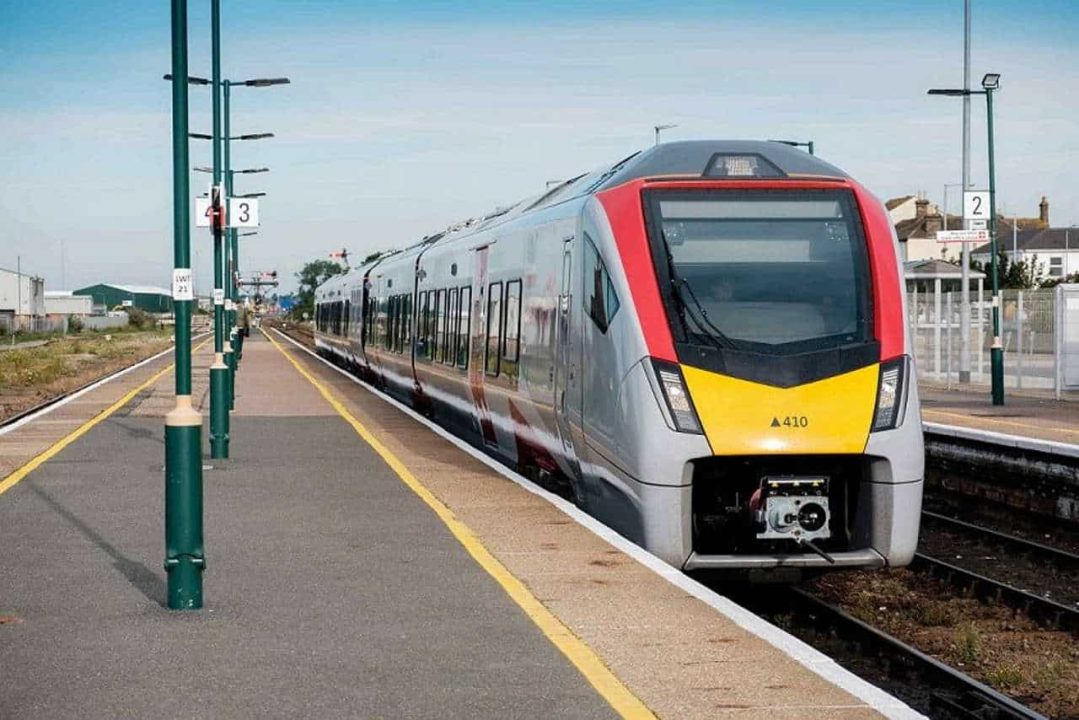There is a breakthrough in the more than two years of damaging strikes across the UK railway network – but not everywhere. A new pay offer to drivers in England seems likely to be accepted. However, drivers in Scotland are still in dispute, forcing the government-managed ScotRail passenger operation to radically reduce services. In Wales and Northern Ireland, strikes are off the agenda. Freight is not directly involved.
Among the rail unions in the UK, the influential drivers representatives ASLEF (historically the Associated Society of Locomotive Engineers and Firemen) has held out, and taken part in eighteen periods of strike action, variously affecting passenger services across Great Britain. However, the recent change of the UK government has seen a change of heart, and a new deal put to the union, with the likelihood of acceptance. Other unions, including the largest, the RMT, have already reached settlements.
Recommendation to accept
The complicated relationships between the four nations of the United Kingdom, and transport governance in England, Scotland, Wales and Northern Ireland, means that industrial relations are at various levels of accord. Some are better than others. The UK government, elected for the whole of Great Britain and Northern Ireland, has responsibility for transport matters – but only in England. The recent general election brought a radical change from the right-wing Conservatives to the much more union-friendly left-wing Labour Party.

It has only taken a matter of a few weeks for the new chancellor – Rachel Reeves – to make a deal with ASLEF, which will almost certainly bring an end to the periodic dispute, which has existed since mid-2022. The deal has officially been offered by the Department for Transport, which the union says will be put to members with a recommendation to accept.
A good offer, a clean offer
According to ASLEF, the longest dispute in the recent history of Britain’s railways was because the former Conservative government, and the privatised passenger train operating companies, could not agree terms with the train drivers. ASLEF say their members have not had an increase in salary since their last pay deals expired in 2019. During that time, the cost of living has increased significantly.
“We are pleased that after being treated with utter contempt for the last two years, we finally have a new government – a Labour government – that listens and wants to make the railway work for staff, for passengers, and for the taxpayer,” said Mick Whelan, ASLEF’s general secretary. “The offer is a good offer, a fair offer. It is what we have always asked for, a clean offer, without a land grab for our terms and conditions. We will put it to members with a recommendation for them to accept.” The no-strings three-phase offer is for 5 per cent for 2022-2023; 4.75 per cent for 2023 to 2024; and 4.5 per cent for 2024 to 2025. The offer is backdated and pensionable.
No prospect of resolution in Scotland
However, the deal only applies to passenger train operating companies based in England. The situation is different in other parts of the UK, where devolved governments have responsibility for transport matters. In Wales, a separate deal was reached some time ago. That has allowed Transport for Wales, which already runs the passenger railway as a public (government-run) company, to operate without industrial dispute. It should be noted that the government in Cardiff has, nonetheless, been criticised over its management. Northern Ireland has stood aloof from the entire dispute – however, the Stormont (Belfast) government has faced various industrial relations issues locally, which could affect all public transport.

It is in Scotland that matters have gone from bad to worse. The nationalised passenger railway in Scotland was originally involved in the dispute affecting all of Great Britain. The Edinburgh government reached a separate deal with the unions last year – but a long-running and separate dispute with ASLEF members has seen a very damaging overtime ban in place for much of 2024. Drivers are not compelled to work outside basic office hours – so early and late services, and trains at weekends, rely on drivers volunteering to work overtime and rest days. Right now, that’s not happening.
Extremely evasive Scottish chancellor
The government-run ScotRail has been operating a reduced timetable (they call it an ‘emergency’) which has seen severe reductions in frequency of trains, and many early morning and late night trains removed from the timetable. Today (15 August) ScotRail said the reduced service would be in place for at least another month (until 17 September). When questioned on the matter this morning by the national broadcaster Radio Scotland, the Scottish government chancellor Shona Robison was extremely evasive on the issue, and unwilling to commit to a resolution. All she would admit to was the likelihood that she would have to follow in the footsteps of her UK counterparts – despite significant unrest over budget cuts elsewhere in the Scottish economy. Further talks are underway.
Robison is part of a Scottish National Party government in Edinburgh, which has unfriendly relations with Labour. Although Labour is riding high in popularity in Scotland, where the SNP administration is under growing scrutiny of its management of the economy. However, anyone hoping that a change of government in Edinburgh will have the same effect as the change of government in London may have a long wait. The different electoral cycle in Scotland means that the next elections for the Edinburgh parliament are not coming down the line until 2026. That’s far enough away that the light at the end of the tunnel is still not in view. Dark days are still ahead on Scotland’s railway.
This article was originally published on RailTech.com
